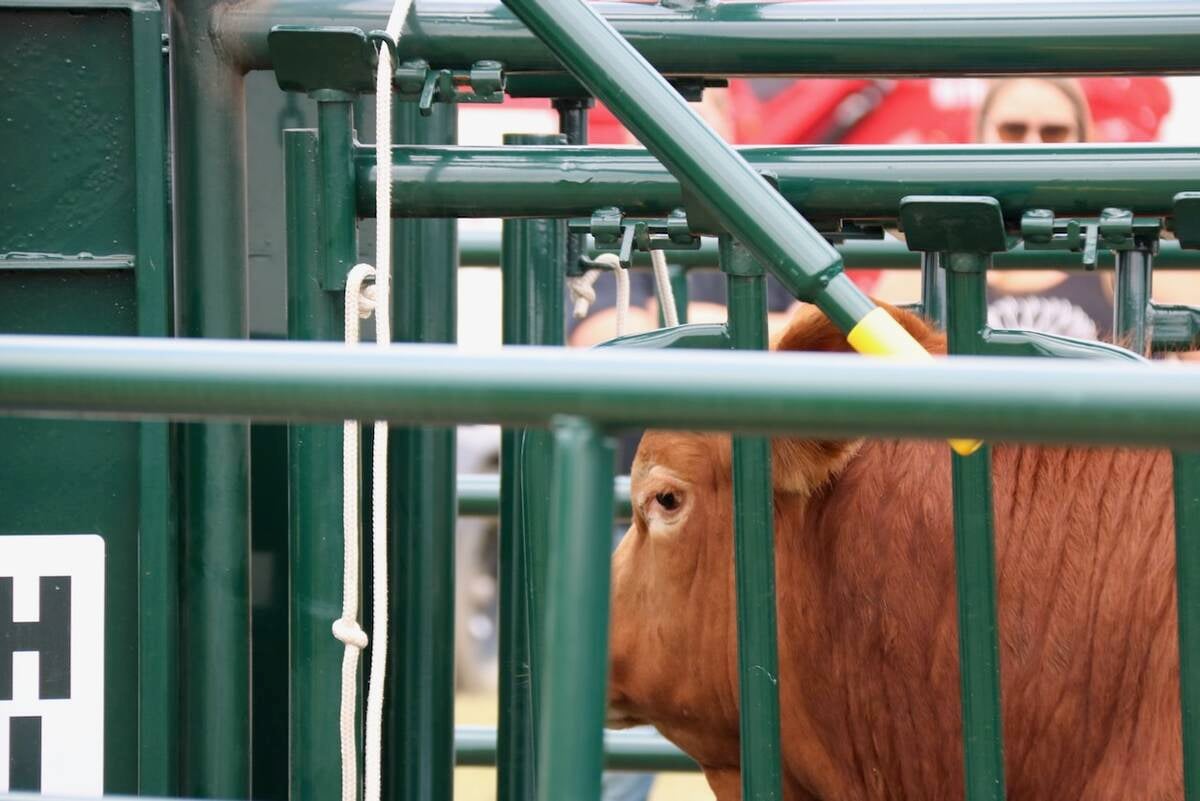If you ask a group of fifth graders what they want to be when they grow up, chances are at least a few will list “veterinarian” as their top choice.
Many people want to become veterinarians, but the admission process is exceptionally competitive.
Because there seems to be a lot of interest in veterinary school admission, I thought I would offer my two cents on the process based on my experiences as an applicant, interviewer at two of Canada’s veterinary schools and as a practicing vet.
Read Also

Good handling equipment a must on cattle operations
It’s important for the safety of producers and everyone else dealing with their stock that handling equipment is functional and safe.
This is not official advice and applicants should check with the school to which they will apply for specific details and requirements.
Canada’s veterinary schools are region-based, so applicants apply to one of the five schools based on where they are considered a resident. Alberta is the exception because it maintains seats at the Western College of Veterinary Medicine in Saskatoon and the University of Calgary. As a result, Albertans can apply to both.
It is statistically harder to get into vet school than other health professions such as medical school because there are so few positions.
For instance, WCVM receives 300 to 400 applications each year for one of the roughly 78 spots in each class. International veterinary schools, such as those in the Caribbean, the United States and the United Kingdom, will admit Canadian students, but these programs are considerably more expensive than Canadian options.
I cannot overstate the importance of academics and good grades in the admission process.
A foundation of academic success in high school will be beneficial during the transition to university. Generally, all high school sciences and maths are needed for admission into university level prerequisite courses.
For example, you will need high school biology to take university level biology and biochemistry.
Individual vet schools will set a requirement for necessary prerequisite courses, so you have to take these. The rest of the academic year is up to you.
Choose a degree program that is interesting because the more you like the material, the better your grades will be.
It is also good to study in an area that offers opportunities if vet school doesn’t work out.
It was for these reasons that I switched from a biology degree into the University of Alberta’s animal science program. Once I realized animal science was about more than just feeding cows, I figured it was interesting, important to society and a good area to pursue if I didn’t get into vet school.
Most university students gunning for vet school admission enter biology or animal science programs, but this isn’t the only option.
I know vets with a wide variety of undergraduate degrees including drama, music and computer science. They pursued what they loved while getting the necessary courses for admission. It is my opinion that this diversity greatly enhances the profession.
On the other hand, degree programs in animal science and biology will provide opportunities to in-crease your experience with animals, so this might be worth considering.
Your grades have to be good, but they don’t have to be perfect.
I’ll make a confession here: I scored a C- in my introductory calculus course and they still let me in. Also, most vet schools give higher weight to courses taken in the most recent years prior to application.
So when you transition from high school to university, expect your grades to drop and then gradually pick up in subsequent years as you figure out how to study, live away from home, manage professors’ expectations and navigate the general university system.
Upper year classes tend to be smaller and more focused, which can also translate into better grades.
At a minimum, two years of full-time university courses are required, but many people complete their four year undergraduate degree before admission.
Your grades will get you the interview, but it is the interview that will get you admission to the program. In Part 2, I’ll go over suggestions to prepare for the vet school interview and how to garner a variety of veterinary and animal experiences.














